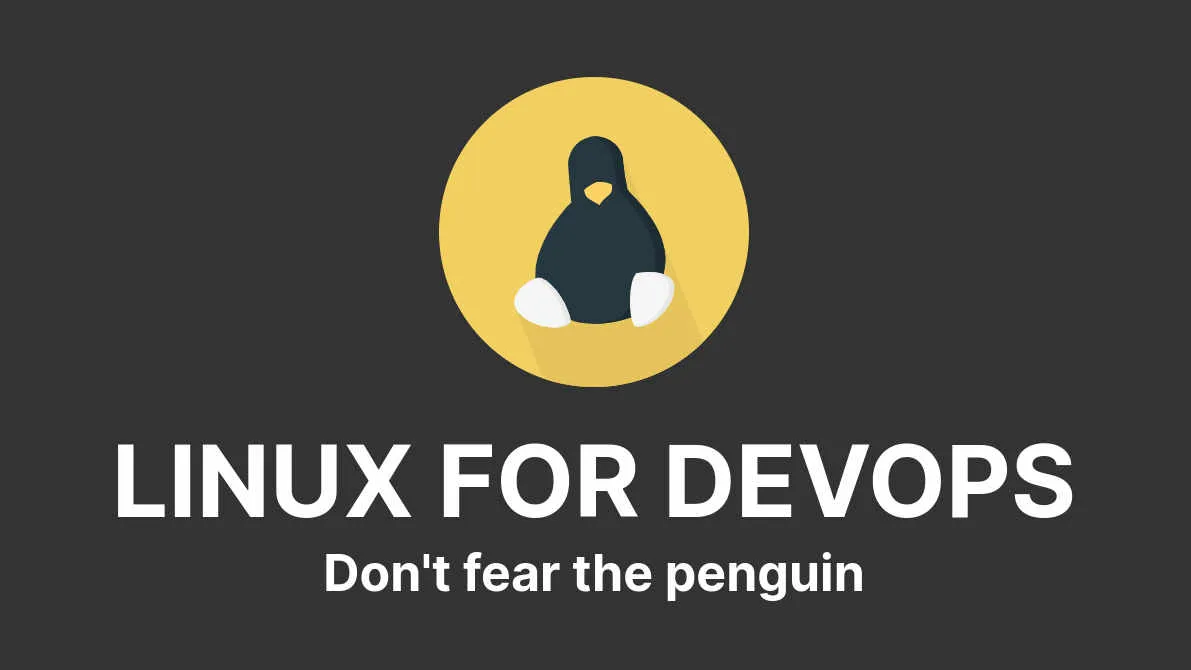Linux for DevOps: The Essential Guide for Modern Infrastructure
 akash javali
akash javali
Linux has emerged as the backbone of modern DevOps practices. From powering cloud infrastructure to enabling automation in CI/CD pipelines, Linux serves as a fundamental building block in today’s technology ecosystem. For DevOps professionals, understanding Linux is no longer optional; it's a core skill that opens doors to efficiency, scalability, and reliability in managing IT operations. This guide dives into why Linux is essential for DevOps, its key features, and how to leverage it to build, deploy, and maintain robust infrastructure.
Why Linux is Essential in DevOps
Open Source Nature: Linux is open-source, meaning it’s highly customizable and adaptable to unique organizational needs. This flexibility is vital for DevOps environments, where teams often require specialized configurations and tools that proprietary systems might not allow.
Widespread Cloud Support: Major cloud providers like AWS, Azure, and Google Cloud Platform (GCP) predominantly run on Linux. Familiarity with Linux commands, networking, and permissions is crucial when managing cloud resources.
Automation-Friendly: With powerful scripting capabilities (e.g., Shell scripting, Python), Linux enables DevOps teams to automate repetitive tasks such as deployments, backups, monitoring, and more.
Containerization: Linux forms the foundation for containerization technologies, especially Docker, Kubernetes, and other container orchestration tools. Since containers are widely used for building and deploying microservices, Linux knowledge is indispensable for managing and optimizing containerized applications.
Core Linux Skills for DevOps Professionals
1. Command Line Proficiency
Mastering the Linux command line interface (CLI) is foundational. The CLI enables you to perform complex tasks quickly without needing a GUI, which is often absent in server environments. Some essential commands include:
ls,cd,cp, andmvfor file and directory operations.grep,awk, andsedfor text processing.chmodandchownfor managing permissions.ps,top,killfor process management.
2. System Administration
Linux system administration covers a range of tasks that are crucial in DevOps:
User and Group Management: Commands like
useradd,usermod, andgroupaddhelp manage user accounts and groups, ensuring proper access control.File Permissions: Understanding file ownership and permissions (
chmod,chown, andumask) is essential to ensure system security and integrity.Networking: Configuring IP addresses, routes, firewalls, and DNS settings is integral to managing Linux servers in a networked environment.
ifconfig,iptables, andnetstatare frequently used commands.
3. Shell Scripting
Shell scripting (e.g., using Bash) is a critical DevOps skill for automating tasks, reducing manual intervention, and improving consistency across environments. Shell scripts are often used to:
Automate software installations and configuration tasks.
Schedule recurring tasks using
cronjobs.Manage backups, monitor resources, and send alerts.
Here’s a simple example of a shell script for automating log cleanup:
#!/bin/bash
# Log cleanup script
find /var/log -name "*.log" -type f -mtime +30 -exec rm -f {} \;
echo "Old log files deleted."
4. Package Management
Managing software packages is vital to keep Linux environments secure and up-to-date. Depending on the Linux distribution, package managers differ:
Debian/Ubuntu:
apt,dpkgRedHat/CentOS:
yum,dnf,rpm
Package managers are also central to dependency management, making them integral to CI/CD pipelines where dependencies must be consistent across build environments.
5. Networking Fundamentals
Networking is crucial when dealing with cloud environments, containerized applications, and distributed architectures. Key areas to understand include:
TCP/IP Protocols: TCP, UDP, HTTP, and HTTPS.
Network Commands:
ping,curl,traceroute, andtelnet.DNS Configuration: Set up and troubleshoot DNS issues, which are common in DevOps, especially in multi-cloud and hybrid environments.
6. Version Control Integration
Linux, along with Git, is essential for managing code in DevOps workflows. Familiarity with Git commands (clone, commit, push, pull, merge, etc.) allows DevOps professionals to handle version control effectively, whether they are working on infrastructure code (IaC) or application code.
Leveraging Linux in DevOps Tools and Processes
1. Continuous Integration/Continuous Deployment (CI/CD)
Linux is a top choice for CI/CD platforms due to its performance, flexibility, and compatibility. Popular CI/CD tools that often run on Linux include:
Jenkins: Highly configurable and works seamlessly with Linux servers.
GitLab CI/CD: Integrates directly with Git repositories and provides powerful CI/CD pipelines.
CircleCI and Travis CI: These tools also support Linux environments and are widely used for automated testing and deployment.
Linux also supports containerization tools like Docker and Kubernetes, which are essential in DevOps CI/CD workflows. Using Linux, you can efficiently manage containerized applications, ensuring portability and consistency across various environments.
2. Infrastructure as Code (IaC)
Tools like Terraform, Ansible, Puppet, and Chef rely heavily on Linux for managing and provisioning infrastructure. With IaC, DevOps teams can manage infrastructure through version-controlled code, promoting consistency and scalability. For example:
Ansible uses SSH, a Linux-native protocol, to connect to and manage remote servers.
Terraform is often used to provision cloud resources like VMs, load balancers, and databases on Linux-based cloud infrastructure.
3. Monitoring and Logging
Linux-compatible tools such as Prometheus, Grafana, ELK Stack (Elasticsearch, Logstash, and Kibana), and Nagios are widely used for monitoring, logging, and alerting in DevOps environments. Linux’s native logging systems (e.g., syslog, journalctl) provide a strong foundation for monitoring, making it easier to troubleshoot and resolve issues proactively.
Security Considerations
Security is a top priority in DevOps, and Linux offers robust security features:
SELinux and AppArmor: Tools that enhance security by enforcing access control policies.
Firewall Configuration: Configuring
iptablesandufw(Uncomplicated Firewall) to control traffic to and from servers.Secure Shell (SSH): Essential for secure remote connections, allowing DevOps teams to manage servers and transfer files securely.
Regular security practices, such as patch management and configuration hardening, are crucial to maintaining a secure Linux environment. Automated tools can assist with vulnerability scanning and compliance audits, reinforcing security in Linux environments.
Future-Proofing DevOps Skills with Linux
With the rapid advancements in technology, DevOps continues to evolve. However, Linux remains at the core of modern infrastructure. Mastering Linux empowers DevOps professionals to adapt to new tools, platforms, and practices as they emerge. For anyone aiming to excel in DevOps, developing expertise in Linux commands, system administration, scripting, networking, and security will provide a foundation that is both stable and adaptable.
Conclusion
Linux is a powerful ally in the world of DevOps, enabling teams to automate, manage, and secure their infrastructure with precision and efficiency. By mastering Linux, DevOps professionals can unlock the potential for rapid deployment, high scalability, and resilient infrastructure, ultimately leading to a more agile and innovative organization. Embrace Linux as a core skill, and the tools, techniques, and future technologies in the DevOps field will become significantly more accessible.
Support My Work
If you found this guide on DevOps helpful and would like to support my work, consider buying me a coffee! Your support helps me continue creating beginner-friendly content and keeping it up-to-date with the latest in tech. Click the link below to show your appreciation:
I appreciate your support and happy learning! ☕

Subscribe to my newsletter
Read articles from akash javali directly inside your inbox. Subscribe to the newsletter, and don't miss out.
Written by

akash javali
akash javali
A passionate 'Web Developer' with a Master's degree in Electronics and Communication Engineering who chose passion as a career. I like to keep it simple. My goals are to focus on typography, and content and convey the message that you want to send. Well-organized person, problem solver, & currently a 'Senior Software Engineer' at an IT firm for the past few years. I enjoy traveling, watching TV series & movies, hitting the gym, or online gaming.